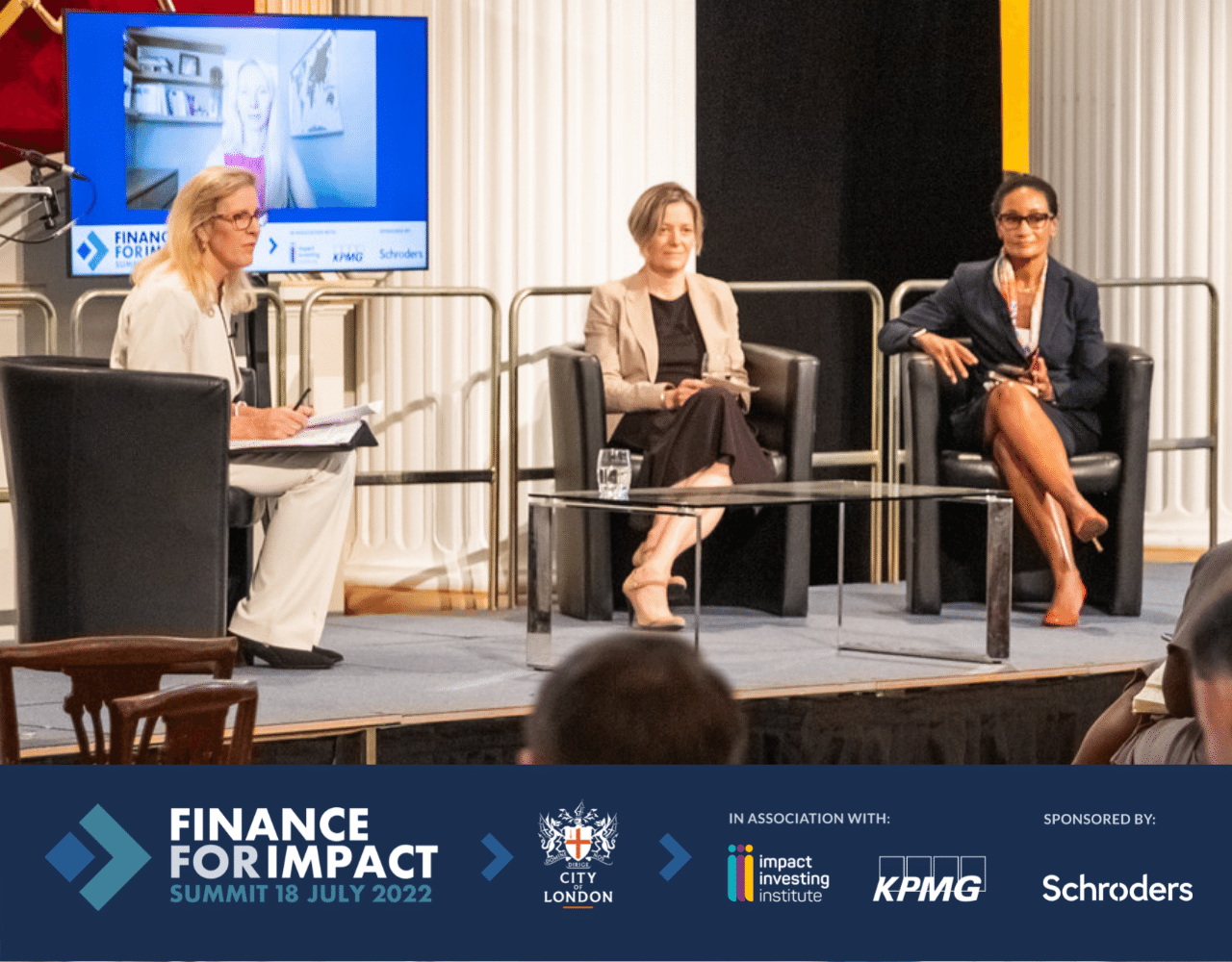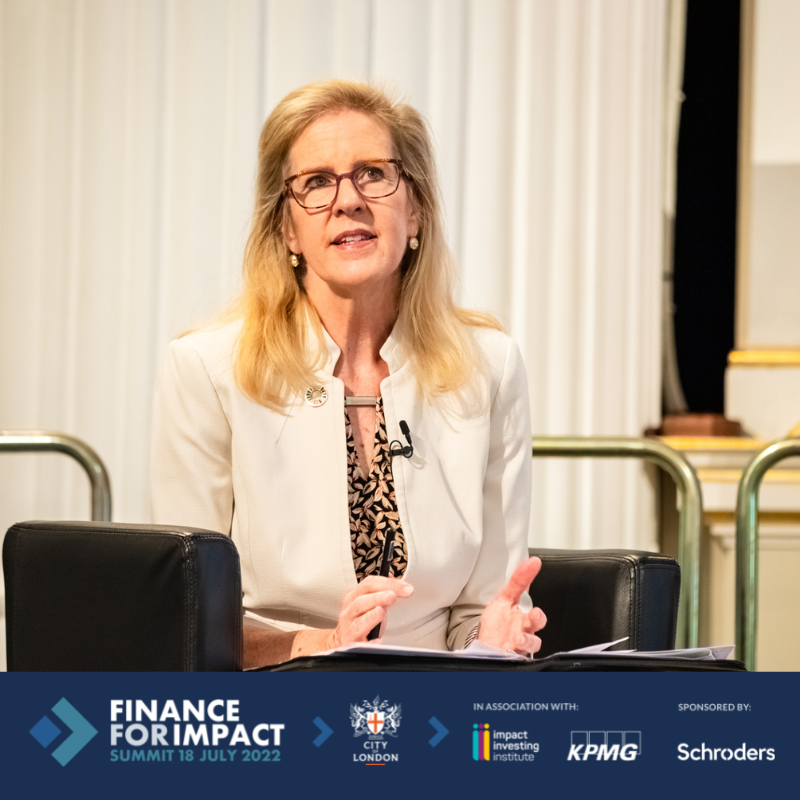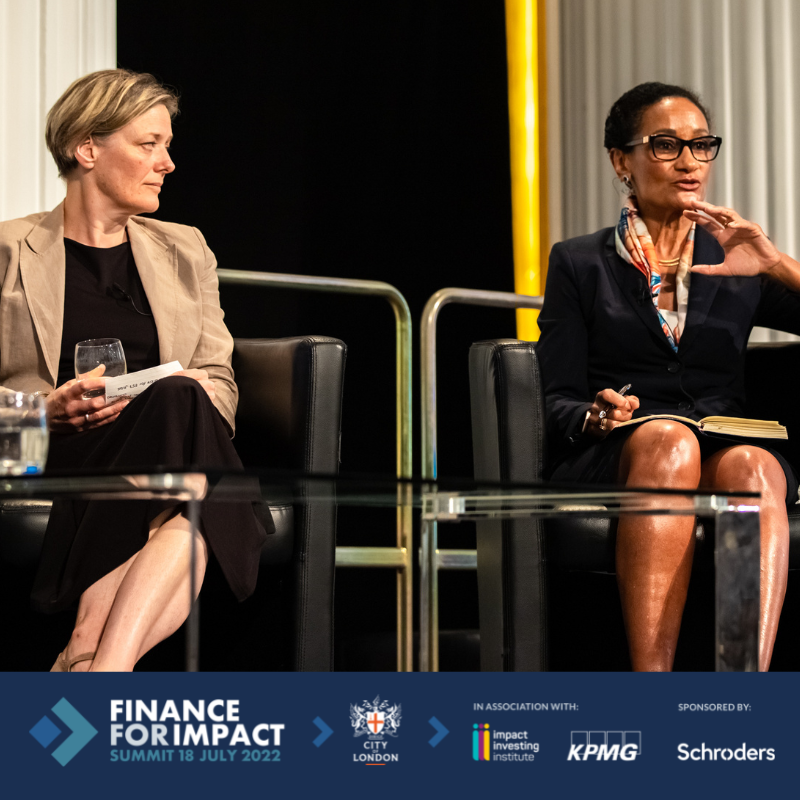Introducing the Just Transition Finance Challenge
With only three months to go until COP27 in Egypt in November, there is an increasing focus on how tackling climate change and its effects on societies can and should be delivered in a fair and inclusive way, across both the UK and other developed and emerging markets.
As part of this, the importance of making a “Just Transition” towards a low-carbon economy is now being recognised. There is an increasing consensus that a single focus on reducing CO2 emissions to achieve net zero is not sufficient – the transition needs to mitigate the negative social consequences and take advantage of the opportunities for job creation and communities that the transition presents.
In order to help deliver this, a coalition of key investors announced the Just Transition Finance Challenge, a new initiative launched by the Impact Investing Institute with support from Deloitte, designed to mobilise capital into investments that support a Just Transition to net zero.
Speaking at the Finance for Impact Summit, panellists Laurie Spengler from Courageous Capital Advisors, Sharon Johnson from AgilityEco, Maria Nazarova-Doyle from Scottish Widows and Anne-Marie Chidzero from FSD Africa Investments explained why they have joined the Challenge and why the initiative is needed.
Why are the Just Transition elements so important?
The term "Just Transition" has been gaining traction in the past few years but it was not until relatively recently that substantive elements of a Just Transition have been defined, with the help of the G7 Impact Taskforce, to provide a clear view of “what good looks like”.
 Laurie Spengler, Special Advisor and Technical Lead of one of the Taskforce’s workstreams, set out these elements – or the “three legs” of the Just Transition stool. These are:
Laurie Spengler, Special Advisor and Technical Lead of one of the Taskforce’s workstreams, set out these elements – or the “three legs” of the Just Transition stool. These are:
- advance climate and environmental action,
- improve socio-economic distribution and equity, and
- increase community voice.
She said that all three of these legs need to be present when we are developing financial products and policies that support a Just Transition. These elements would have a wide application, relevant not only to investments into clean energy, but also in other areas such as the built environment, housing, healthcare and financial inclusion.
It was noted that asset owners such as pension funds are starting to realise that these elements of the net zero transition need to be taken as seriously as the carbon implications. This was a point made by Maria Nazarova-Doyle from Scottish Widows. She explained that this is because the net zero transition will not happen unless we take people with us on this journey. She further explained that if we create policies that do not take into account the needs of workers, local communities and regions, the transition will not be successful. A limited focus on ‘carbon accounting’, without taking into account socially responsible policies, will risk creating disenfranchised groups of populations, which in turn could have political consequences that would undermine any progress towards net zero.
She further noted that pension funds have signed up to a number of ESG policies and investing in a Just Transition would be an effective way of fulfilling their obligations on the S. She also explained that investors recognise the systemic risks of failing to deliver a Just Transition to their assets and returns, as well as the investment opportunities for initiatives that effectively deliver a Just Transition.

What do good Just Transition investments look like?
There are many good examples of projects that deliver on the three elements of a Just Transition, while delivering returns to their investors. Speaking at the Finance for Impact Summit panel were two representatives of firms that have been putting Just Transition investments into practice.
The first was Sharon Johnson from AgilityEco, a private company that works with communities to offer fuel poverty and energy efficiency services – delivering both on the E and the S of ESG. She provided the everyday examples of social challenges they encounter and how they address them, noting, “We speak to customers on the phone… …these people are in abject need of help, they can’t pay the bills, they may not understand what benefits they’re entitled to, their houses are probably cold and damp, not energy efficient and they’re paying higher bills than they need to.”
In response to this, AgilityEco go into homes and conduct an audit of both their circumstances and the measures that could improve them -- putting them forward for housing upgrades such as new heating or insulation. As well as helping 45,000 customers out of fuel poverty through community schemes and saving 545,000 in CO2 emissions annually, AgilityEco’s revenues have been strong: in 2019 they were £28 million, and this figure has been “effectively doubled” in 2022.
The second representative was Anne-Marie Chidzero, from FSD Africa, who set out her firm’s approach to supporting the Just Transition, noting that her company’s purpose is to make finance work for Africa. FSD Africa work with policymakers, governments, financial institutions and communities around specific issues, notably how to finance Africa’s green economic growth.
She said that the projects they support are seeking a financial return but are also aimed at delivering impact around three core areas. These are:
- economic (finance for jobs and improved capital flows to Africa);
- social (providing financial solutions to people and businesses to help them manage risk around climate change, as well as increase access to affordable housing, health services and social infrastructure) and
- sustainable future outcomes (driving change in the financial sector via reductions in CO2 and delivering green economic growth).
Despite these individual company examples, however, it was acknowledged that it is currently very difficult to invest in funds that are clearly aligned to a Just Transition. This is partly because there is no agreed criteria or standard for investors.
This is where the Just Transition Finance Challenge comes in. Later this year, the Challenge will unveil a common set of criteria that will underpin a new Just Transition label for public and private asset owners and asset managers. This label will recognise investment products that deliver the three critical elements of a Just Transition. As part of this process, there will be a public consultation, inviting input from the wider industry on what a good Just Transition investment looks like.

Why join the Just Transition Finance Challenge?
As the panellists at the Finance for Impact Summit made clear, there are a number of compelling reasons for financial services firms to get involved in the Just Transition Finance Challenge.
Speaking from an asset owner perspective, Maria Nazarova-Doyle from Scottish Widows made clear that their involvement was driven by the desire to help design the label and facilitate the development of new products. This would ensure that the label would be underpinned by better data and transparency, which would be most useful for them when choosing the best investment products.
Meanwhile, Anne-Marie Chidzero at FSD Africa said the Challenge was a great opportunity for them to partner with asset managers and asset owners, to structure funds, invest alongside others and deliver their impact outcomes across Africa.
Ultimately, the aim of the Challenge is to mobilise more public and private capital into investments that support a Just Transition. It was revealed that financial services firms with more than £3.6 trillion of assets and assets under management have announced their participation in the Just Transition Finance Challenge. With more firms participating, it is hoped that it will bring Just Transition investments into the mainstream. The first slate of investment products, across major asset classes and developed and emerging markets, is expected to be announced later this year.
Laurie Spengler concluded the session by issuing a challenge for the investment community, “By this time next year, every organisation should have at least one Just Transition investment in their portfolio… …The time is now to make sure we’re putting out money to work.”
